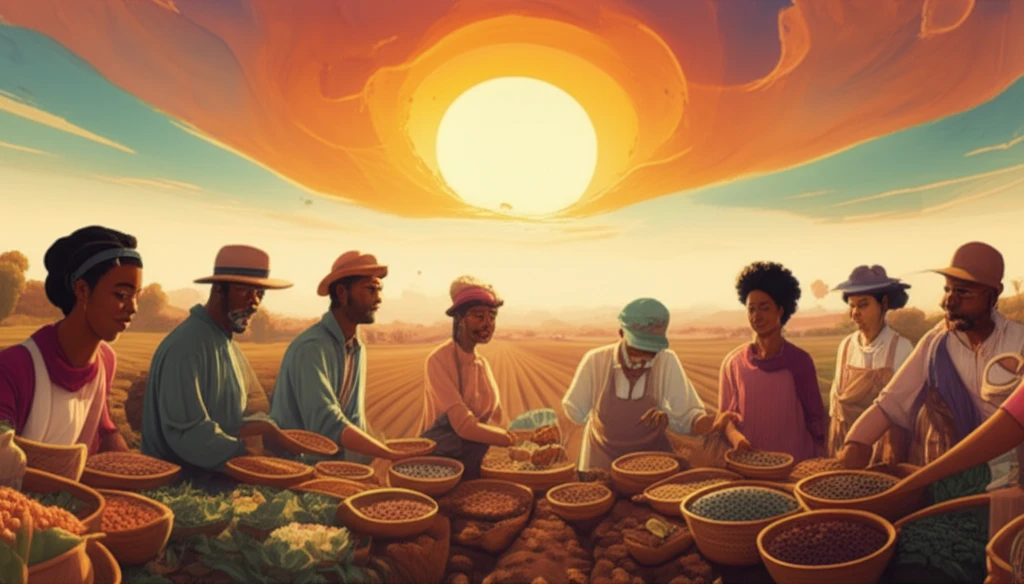
Unlock Your Farm's Potential: How Knowledge Sharing Can Boost Organic Arable Farming
"Discover how European farmers are leveraging knowledge exchange to improve yields and embrace sustainable practices."
Organic farming is more than just a method; it's a commitment to sustainability, biodiversity, and healthy food production. But let's face it: navigating the world of organic arable farming can feel like charting unknown territory. Farmers constantly seek innovative solutions to improve yields, manage soil health, and tackle pesky weeds and diseases – all while adhering to strict organic principles.
The good news? You're not alone! Across Europe, a vibrant community of farmers, researchers, and advisors are actively exchanging knowledge and experiences to boost organic arable farming. This collaborative approach is proving to be a game-changer, helping farmers overcome challenges and unlock their farm's full potential.
This article dives into the fascinating world of knowledge exchange in organic arable farming, drawing insights from the 'OK-Net Arable' project, a European initiative designed to improve knowledge sharing among farmers. We'll explore the tools and techniques that are making a difference, and discover how you can tap into this wealth of shared wisdom to enhance your own organic farming practices.
The Power of Shared Wisdom: How Knowledge Exchange Works

Knowledge exchange (KE) is all about connecting people, sharing ideas, and learning from each other's successes and failures. In organic arable farming, this means creating platforms and opportunities for farmers, researchers, and advisors to come together and exchange their expertise.
- Technical guides: These provide in-depth information on specific organic farming practices, such as crop rotation, soil management, and pest control.
- Videos: Visual demonstrations of techniques and machinery, offering a practical and engaging way to learn.
- Decision support tools: Software and online applications that help farmers make informed decisions about crop selection, nutrient management, and other key aspects of organic farming.
- Workshops and farm visits: Opportunities to connect with other farmers, see successful practices in action, and exchange ideas in person.
Bringing It All Back to the Farm: Practical Steps for Knowledge Exchange
Knowledge exchange is a powerful tool for improving organic arable farming, but it requires a proactive and collaborative approach. By embracing online resources, connecting with other farmers, and actively participating in knowledge-sharing initiatives, you can unlock your farm's full potential and contribute to a more sustainable future for agriculture.
